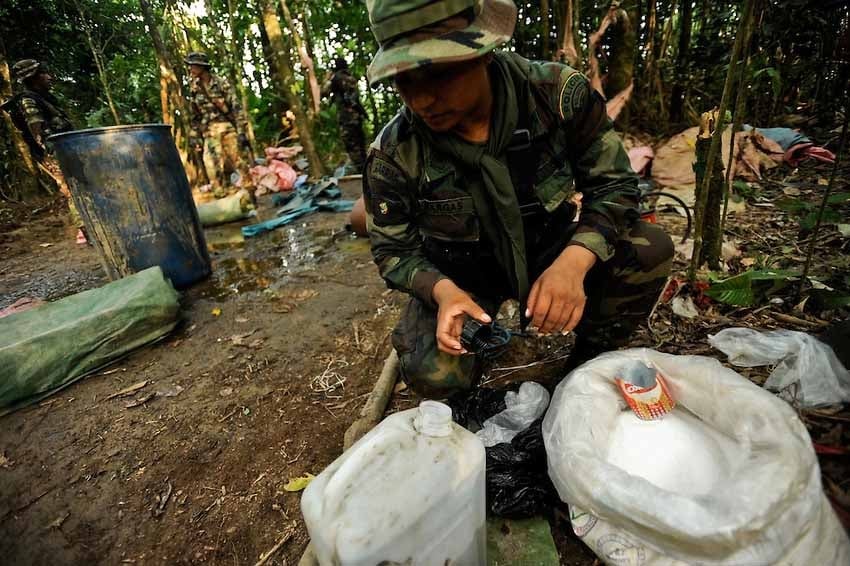The United States has criticized Bolivia’s failure to cooperate fully on anti-narcotics efforts, while the country’s second city, Santa Cruz, declared a state of emergency due to a rising crime wave.
In its recently-released 2013 International Narcotics Control Strategy Report, the US State Department said Bolivia had “failed demonstrably” for the fifth consecutive year in 2012 to meet obligations under international counternarcotics agreements, due to its inability to stem cocaine production and insufficient law enforcement efforts.
Although Bolivia’s eradication program was exceeding its stated targets, “eradication and interdiction results were not sufficient to reverse increased potential cocaine production levels” resulting from a more efficient cocaine-making process, said the report. Meanwhile law enforcement’s ability to “identify, investigate and dismantle drug trafficking organizations” remained weakened following the expulsion of Drug Enforcement Administration (DEA) officials in 2008.
In Santa Cruz, governor Ruben Costas declared “we are in an emergency,” reported newspaper Los Tiempos, following a meeting to discuss the rising crime wave in the city. Various children have been kidnapped in recent months, with the suspected involvement of organized crime. Costas announced checkpoints would be installed in schools, while $14 million would be spent building six new police stations and adding 200 volunteers to the Civilian Police Support Group.
“We will not waver in our fight against organized crime, to banish foreign criminals from Bolivia who, in complicity with compatriots, are causing anxiety, especially in Santa Cruz,” national police commander Alberto Aracena told news ageny ABI last month.
InSight Crime Analysis
Bolivia’s anti-narcotics operations have been a highly politicized issue following the 2005 election of President Evo Morales, a leftist and former head of a coca growers union, and the expulsion of the DEA and US Ambassador Philip Goldberg in 2008, amid accusations of spying. An information war has been a major part of that, with consistently conflicting narratives on Bolivia’s success or failures fighting drug trafficking. Bolivia has been on the US’s blacklist of non-cooperative countries for five years, while the Bolivian government claims to have made great strides in seizures and eradication.
The issue of the presence of international criminal groups has also been a matter for debate. According to the US, there are Colombian, Brazilian, Peruvian and other foreign nationals producing and trafficking drugs in the country, as well as laundering money, but Bolivia denies the presence of international cartels – though admits cartel “emissaries” are operating.
However there is increasing acknowledgement of the growing problem of drug trafficking by the Bolivian government, especially in Santa Cruz, which has emerged as a hot-spot for criminal activity. The government announced it would investigate links between corrupt officials and foreign criminal organizations in Santa Cruz last August, and a few months later announced it would create a permanent base in the city for the anti-narcotics police. This new investment in security is a further indication there are real grounds for concerns over international criminal activity, rather than the issue simply being fodder for US political posturing.

